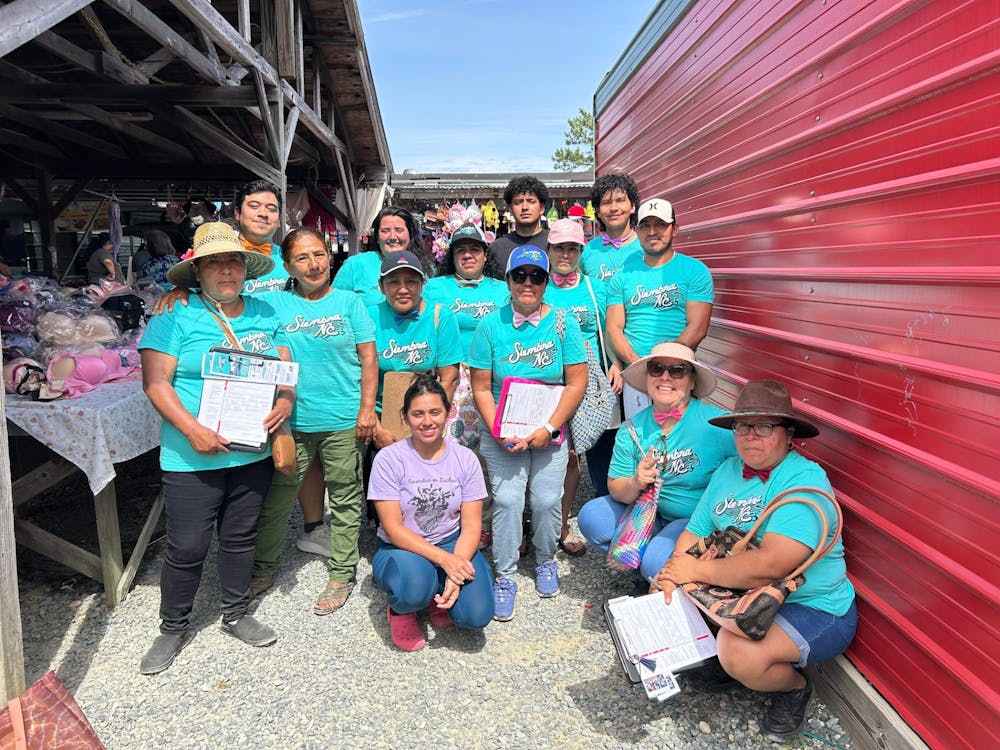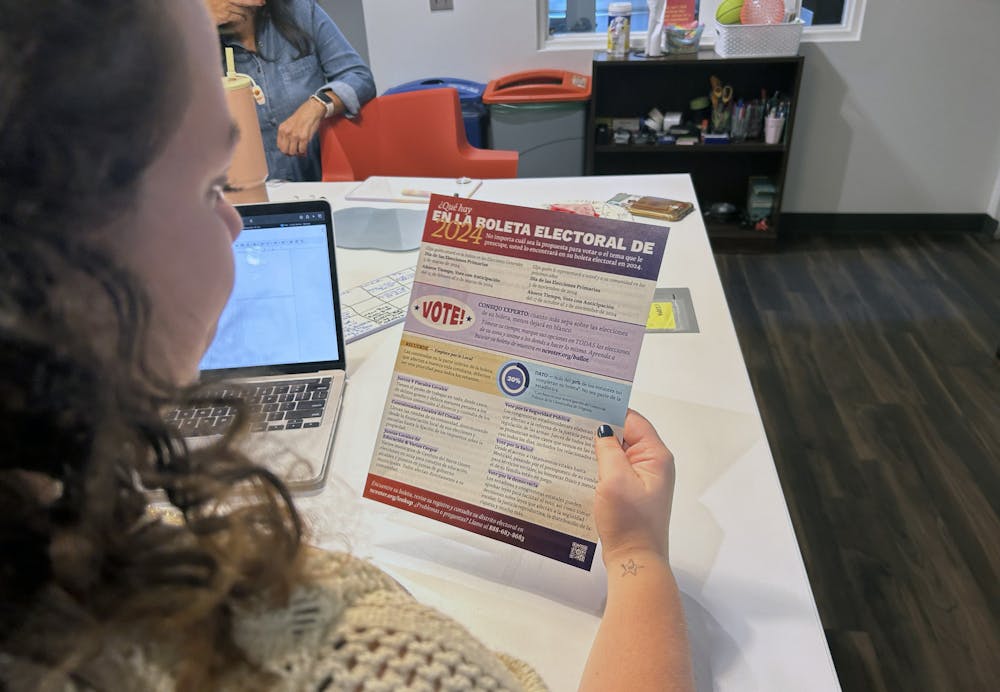In a state where former President Donald Trump won by less than 75,000 votes in 2020, both parties are looking to win over North Carolina through the fastest-growing population in the state — the Hispanic community.
From 2010 to 2020, the Latino population in North Carolina grew by almost 40%, far more than the national growth of 23%. In this decade, North Carolina’s Hispanic population grew by almost 320,000 residents — the largest increase of any racial group in the state — and is now greater than 1 million people, according to the 2020 Census.
However, in 2022, Latino voter turnout actually decreased after having increased in the past two midterm elections, according to the North Carolina State Board of Elections.
With such a large and relatively new population, state and nationwide organizations are working to engage the Hispanic community in North Carolina.
Kelly Morales is co-director of Siembra NC — a grassroots organization defending the North Carolina Latino community, particularly with Immigrations and Customs Enforcement and wage theft. The organization has registered 5,600 Latinos by touring across the state.
“We're excited, and we think that Latinos continue to be a growing voter base,” Morales said. “We know that it's not just about this year, but it's about growing the voter base of Latinos that time and time again will continue to one day, hopefully, be the 10% of the voter block in the state.”
Morales said Alamance County is an important county to continue organizing in because it was the first county to elect a Latino into the state house of representatives — Ricky Hurtado, who served from 2021 to 2023 — while also having a conservative sheriff like Terry Johnson.
Johnson has served as Alamance County sheriff since 2002 and garnered national attention after his response to protests in Graham over a confederate statue — the sheriff’s office arrested and pepper-sprayed protestors at a protest to remove the statue.
“For many years, we had this contradiction around, like how does Terry Johnson exist in Alamance? While at the same time, we also had Ricky Hurtado in the state legislature,” Morales said. “I think just inviting folks to lean into the complexity around just some of our counties and their growing demographics, and how little by little, I think we are organizing Latinos.”
Alamance County’s population is made up of 14.4% Hispanics, according to the 2020 Census, which is greater than the percentage of Hispanic people in North Carolina at 10.7%.

The Siembra NC canvass team registers voters at the plug — a Latino flea market. Photo courtesy of Siembra NC.
Morales said while both sides of the spectrum are trying to attract voters through appeals of abortion, public schooling and others, they are not appealing to other important issues that Latinos care about.
“I don't think we're hearing enough about working conditions. I don't think we are hearing from either party about, like, what are some of the economic plans that folks have in order to really better conditions?” Morales said. “I think that that's something that we all need to kind of think about and engage in as we think about how to talk to Latino voters.”
CNBC has ranked North Carolina in the top three states for business for the last five years, including being No. 2 for 2024, however, an annual study by Oxfam has also named North Carolina in the worst state for wages.
Morales said the connection between North Carolina being one of the top states for business and the worst state for labor protections is very clear.
“I don't think that this is by accident, right? That a lot of the GOP, a lot of Republicans, are so proud that we are so great number one state for business. And while that's really great, we also need the state to commit to also doing right by workers,” Morales said. “For us, that's what this election has been about, is it has been about creating a North Carolina that's going to be good for business, but that also protects its residents, that also protects its workers across the state.”
At the Hispanic Federation — a bipartisan nonprofit organization that works to empower and strengthen the Latino community across the country — Jack Golub is also working to connect with the population at events and popular local areas to encourage civic engagement.
The priority right now is giving people more information about the upcoming election and registering people to vote, Golub, Hispanic Federation’s community engagement program manager, said.
“We are very focused on addressing what we feel is a systemic disadvantage that Latino communities have in terms of being able to have the information they need to register to vote, the information and access to polls to actually go vote, and the sort of connection with civic institutions to have a sense of responsibility for voting and a sense of personal efficacy,” Golub said.
The Hispanic Federation is also committed to helping other small local organizations educate their constituents, Golub said.
“We're trying to really make a difference by going out there and by empowering smaller organizations that are locally run, locally organized, to also do their own voter mobilization efforts,” Golub said. “Because that's the difference, and we need to meet those people where they're at in order to give them in order to handle.”
Golub said to create fair representation, it's incredibly important to get Latinos to the polls.
“Democracy only works when we do. It doesn't happen on its own, especially for Latino communities,” Golub said. “It's really important to have that equal and fair representation, and especially in an election where no matter who you're supporting, the stakes are feel pretty high — and that even more so in North Carolina, a swing state that really has a chance to affect the presidential election, and then has a really important governor's election and a bunch of other important down by ballot races.”
Morales said Siembra is working to create trust within the community to build a strong voter base — in this election and the future.
“I think that's where some of the work that Siembra has been doing in creating and developing relationships, building trust, but then also making sure that we're telling folks it's not just about one candidate, one election, it's about what we're trying to build longer term,” Morales said.
Golub said the most important thing any voter can do is to do their research and vote.
“This really does feel like the most important election of our lifetimes, given the stakes, given the role of North Carolina, especially,” Golub said. “If you're ever going to participate in democracy, now is the most important time to do so, and the best way to do that is to make an informed decision and vote for someone.”


